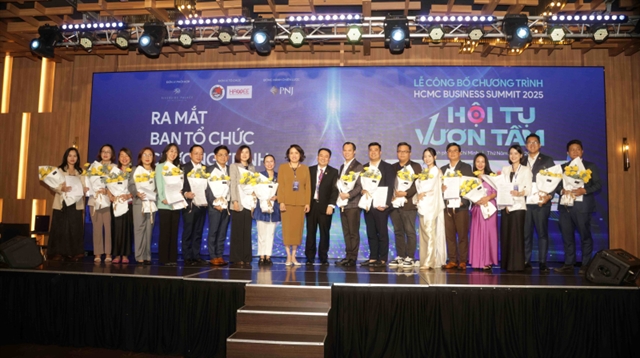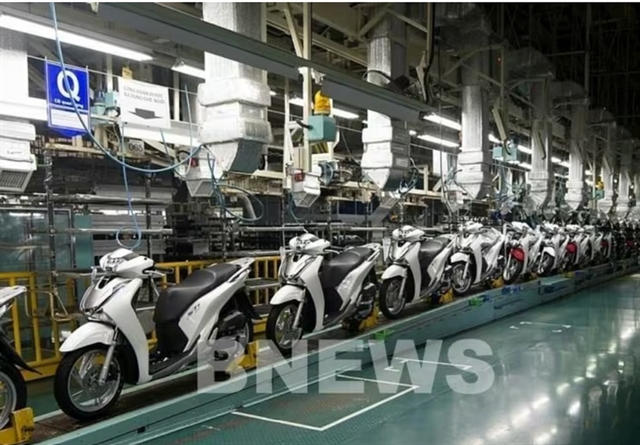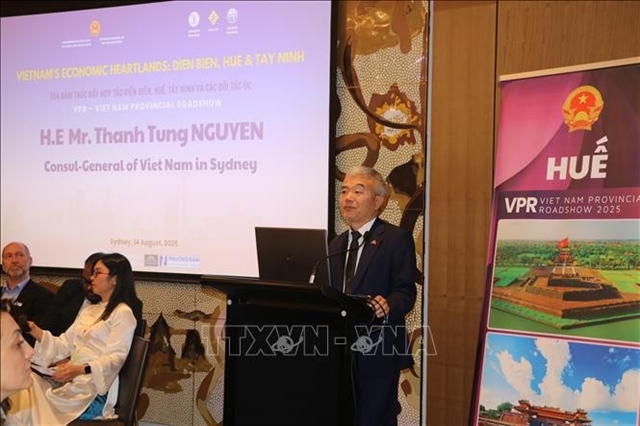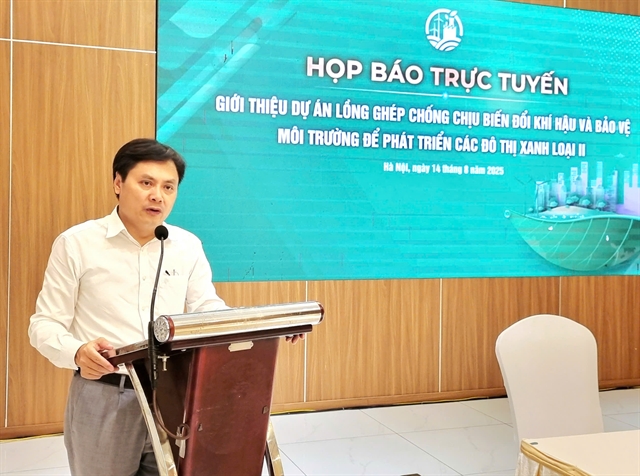 Environment
Environment
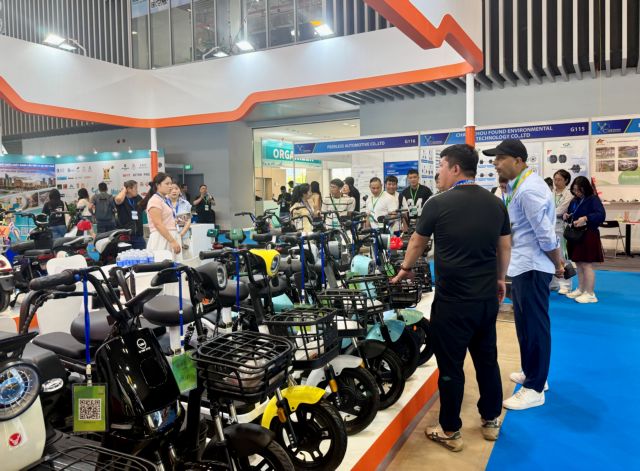
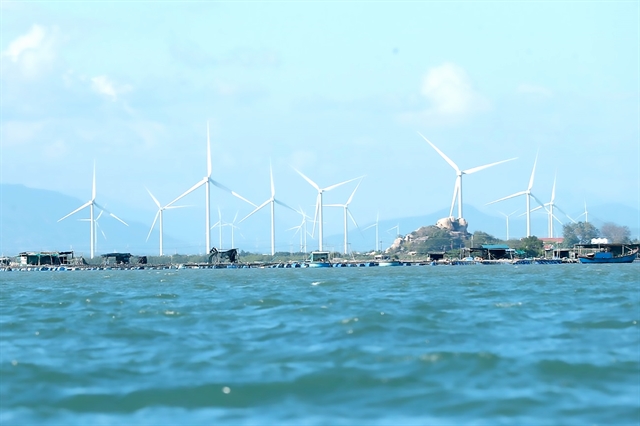 |
| A wind power project in Thuận Bắc District, the coastal central province of Ninh Thuận.— VNA/VNS Photo Minh Quyết |
Nguyễn Hằng
HÀ NỘI — Việt Nam's energy transition presents challenges in the years ahead, but it also offers clear opportunities to establishing stable and long-term foundations for a sustainable economic future.
The challenges include the need for advanced digital and AI technologies, robust energy storage systems and substantial upgrades to grid infrastructure, in order to manage the increased load from renewable energy sources.
Speaking with Việt Nam News on the sidelines of a recent high-level technical seminar, Tok Kian Seng, head of Section for Offshore Infrastructure SEA & Japan, Energy Systems APAC at DNV, pointed out the challenges in the energy transition process.
Many countries also face obstacles in upgrading and expanding their grid systems to accommodate more renewable energy sources while maintaining a stable balance between supply and demand, he said.
Trần Hoài Trang, deputy director general of the Electricity Regulatory Authority under the Ministry of Industry and Trade, said that energy plays a pivotal role in laying the groundwork for Việt Nam’s socio-economic development.
Resolution No. 55 of the Politburo on the national energy development strategy to 2030, with a vision towards 2045, said that energy supply, particularly electricity, has broadly met the demands of economic and social growth.
However, the energy sector still faces considerable limitations, he said at the seminar titled 'Supporting Việt Nam’s Energy Transition Journey', co-organised by the Electricity Regulatory Authority and the Norwegian Embassy in Hà Nội.
Ensuring national energy security remains a pressing issue, as domestic supply sources fall short and reliance on imported energy continues to rise, he said.
Thus, developing renewable energy, especially wind power and solar power, is an inevitable direction, in line with the country's potential and strengths and the world's development trends.
Opportunities
Despite global investment in energy projects showing signs of decline, the Asia–Pacific region, (including Việt Nam), is expected to maintain stable demand for large-scale energy infrastructure, said the APAC Offshore Wind Segment Lead at DNV Energy Systems, Zhang Minghui.
Offshore wind power in the region is evolving. The APAC market is not just expected to overtake other markets but also evolving to keep up with the trends such as energy security, he said.
In Việt Nam, the revised National Power Development Plan VIII (PDP8), approved on April 15, 2025 via Decision No. 768/QĐ-TTg, marks a bold turning point in the country’s energy strategy to 2050.
The plan clearly outlines a shift away from coal, instead prioritising the development of renewable energy, energy storage, nuclear power and emerging fuels such as green ammonia and hydrogen.
With an estimated offshore wind potential of 600GW, the highest in Southeast Asia, Việt Nam is positioning itself as a regional leader in clean energy.
The plan sets ambitious targets, including 6 to 17GW of offshore wind capacity by 2035, alongside major investments in grid infrastructure and battery storage.
Việt Nam is also strengthening its role in the regional supply chain, especially in manufacturing offshore substations and foundation structures.
There is vast potential for offshore wind development in Việt Nam due to its long coastline and consistent wind speeds, ideal conditions for offshore wind projects, Tok added.
According to Tok, digital technologies are key to the energy transition.
They can significantly improve efficiency, reduce costs and minimise environmental impacts.
Tools such as predictive maintenance and real-time monitoring enable strategic decision-making, while AI offers valuable insights for navigating system uncertainties.
Energy companies should embrace innovation through digital transformation while managing cybersecurity risks with structured diligence frameworks like SeSAM, he said.
DNV provides advisory, assurance and risk management services.
“We will leverage our global advantages together with local resources to tackle challenges and unlock new opportunities, in order to accelerate the progress of energy transition together.
“So we look forward to be the trusted partner for Việt Nam to achieve a sustainable and resilient energy of future,” he said.
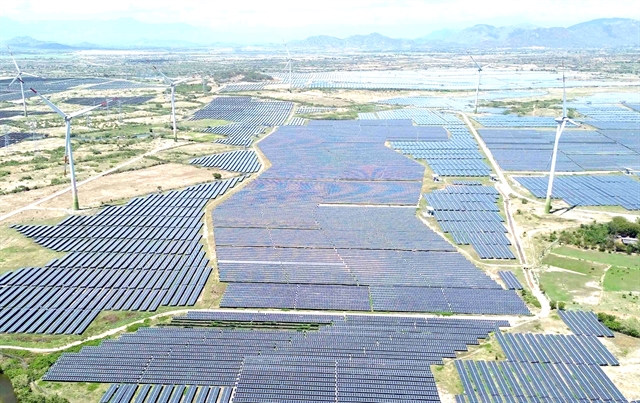 |
| A wind and solar power project in Thuận Bắc District, the coastal central province of Ninh Thuận.— VNA/VNS Photo Trần Việt |
Solutions
Senior Vice President - Special Projects at DNV Energy Systems, Jeffrey Lim, pointed out five key solutions to advance the energy transition in the Asia-Pacific region.
The first solution is to increase investment in renewable technologies such as solar and wind. The second solution is to scale up the deployment of energy storage systems.
Another solution is to strengthen carbon credit pricing mechanisms, including carbon taxes and emissions trading schemes.
Enhancing international cooperation and financial support for clean energy projects was one of the solutions, he said.
The fifth solution is to develop stable, technology-neutral policies that enable fair competition among all energy sources.
Meanwhile, Zhang emphasised the decisive role of collaboration, not only within regional supply chains but also through knowledge transfer and digital integration.
“The lessons learnt from other regions are important as well - not just about sharing of new technologies but also about embracing digitalisation,” he added.
Ambassador of Norway to Việt Nam, Hilde Solbakken, stressed the importance of a well-defined Government framework for innovation and research and development.
In Norway, a key role of the Government in achieving the green energy transition is to provide the framework for innovation, research and development, including also some finance instruments for the private sector.
“But it is the private sector that will be able to find the actual solutions and implement them, and not least to make them cost-effective,” she said.
Trang, from the Electricity Regulatory Authority, said to firm up the Party and State’s policies on renewable energy development, the ministry has advised on the content of reports submitted to the Prime Minister for presentation to the National Assembly regarding the promulgation of the Law on Electricity.
In November 2024, the Government and the ministry issued a number of subordinate legal documents to finalise key policies for the power and renewable energy sectors, particularly with regard to offshore wind power, paving the way for large-scale deployment of renewable energy projects in the near future.
Additionally, the ministry actively coordinated with other ministries, sectors and local authorities to implement the drafting of Power Development Plan VIII.
The plan prioritises the vigorous promotion of clean, green energy sources, aims to minimise environmental impact and gradually reduce the negative effects of climate change, he said.
It is underpinned by a strategic vision to fully harness the nation’s potential and advantages in energy development, with a special emphasis on renewable energy across three core objectives of meeting domestic energy demand, facilitating the direct power purchase mechanism, and supporting electricity exports.
The revised plan puts forward 11 groups of solutions, with several key measures highlighted.
Firstly, it proposes the continued improvement of mechanisms and policies to establish a clear and enabling legal corridor for the implementation of power projects.
Secondly, it calls for regular engagement with local authorities to support and facilitate power project developers in ensuring that implementation proceeds according to schedule.
Thirdly, the plan advocates for diversifying funding sources and mobilisation channels, ranging from Government and banking finance to aid capitals.
It also seeks to attract both domestic and foreign investment, encouraging broad participation across economic sectors in the energy industry.
“With synchronous solutions from management methods of power development and project implementation, I believe that investors will have enough legal framework to implement power projects in general, renewable energy projects in particular, contributing to the implementation of Việt Nam's Energy Development Strategy,” Trang added.
Det Norske Veritas (DNV) is one of the world’s largest energy consultancies, with core expertise in energy systems, maritime, offshore infrastructure, digital assurance and sustainability strategy.— VNS

